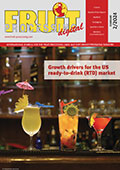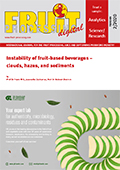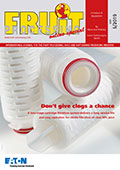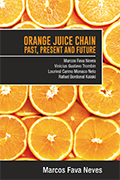The Power Of The Olive For Beauty Beverages: Doehler Launches Olive Leaf Extract
Olives have always been valued by both consumers and the food industry for their healthy ingredients. The fruits are also known for…
Olives have always been valued by both consumers and the food industry for their healthy ingredients. The fruits are also known for their high oil content. This makes them high in calories – with around 340 kilocalories per 100 grams, black olives certainly pack in a lot of energy for a fruit. But olives also contain vitamins, minerals and valuable secondary plant substances such as antioxidants, considered the olive tree's elixir of life. It is not only the olives themselves or the olive oil that contain these antioxidants – the olive leaves do too. Doehler now offers a high-quality olive leaf extract that has all the naturally healthy properties of the olive fruit with none of the calories. The natural extract of olive leaves has been used in skincare products and dietary supplements for many years, but remained relatively undiscovered for food and beverages. With its premium olive leaf extract, Doehler is now making the power of the olive tree accessible to the food and beverage industry, allowing the creation of a wide range of product applications – all calorie-free.
The olive leaf extract contains antioxidants in a highly-concentrated form, so that it only takes a small quantity of pure olive leaf extract to have an effect. Doehler's extract is standardised at 3 % of the active hydroxytyrosol complex®. Hydroxytyrosol extracted from the olive leaf is currently regarded as the strongest plant-based antioxidant with ORAC values over 4,000,000 TE/100 g (TE = Trolox Equivalent). The European Food Safety Authority (EFSA) has approved a health claim for the polyphenols in olive oil from 5 mg of hydroxytyrosol and its derivatives (e.g. oleuropein complex and tyrosol) per 20 g of olive oil.1
High-quality raw materials are used in the production of the olive leaf extract. It is extracted exclusively from the leaves of olive trees from monitored growing sites. The use of a gentle extraction process retains the original naturalness and 100 % of the valuable ingredients.
Health-related positionings for food, dietary supplements and especially beverages
Doehler's olive leaf extract is crystal clear, water soluble and, thanks to its temperature and acidity stability, ideally suited to beverages and many other foods. The health-promoting properties of the olive leaf make a wide variety of product positionings possible, ranging from low-cholesterol foods to “beauty” beverages and a wide range of dietary supplements, such as those intended to support mental health. In order to claim a health-promoting added value, especially in the EU, combining it with vitamins and minerals, for example, is recommended.
From one source
As well as these extracts, Doehler offers a full range of other functional ingredients. As a provider of an integrated solution approach, Doehler offers functional mixtures for any indication, positioning or product application desired. The mixtures already contain all the ingredients needed for a health-related claim and can be easily incorporated into any overall concept.
Sources:
Poudyal H., Campbell F., Brown L. (2010): Olive leaf extract attenuates cardiac, hepatic, and metabolic changes in high carbohydrate-, high fat-fed rats., J Nutr., May;140(5):946-53)
Bayram B., Ozcelik B., Grimm S., Roeder T., Schrader C., Ernst I.M., Wagner A.E., Grune T., Frank J., Rimbach G. (2012): A diet rich in olive oil phenolics reduces oxidative stress in the heart of SAMP8 mice by induction of Nrf2-dependent gene expression., Rejuvenation Res., Feb;15(1):71-81)
Mnagui K., Hajji R., Derbali F., Khilf I., Kraiem F., Ellefi H., Elfeki A., Allouche N., Gharsallah N. (2015): Protective Effect of Hydroxytyrosol Against Cardiac Remodeling After Isoproterenol-Induced Myocardial Infarction in Rat., Cardiovasc. Toxicol, Apr;7
Dudley J.I., Lekli I., Mukherjee S., Das M., Bertelli A.A., Das D.K. (2008): Does white wine qualify for French paradox? Comparison of the cardioprotective effects of red and white wines and their constituents: resveratrol, tyrosol, and hydroxytyrosol., J. Agric Food Chem. Oct;56(20):9362-73
Mnagui K., Khilf I., Hajji R., Derbali F., Kraiem F., Ellefi H., Michel T., Halabalaki M., Skaltsounis A.L., Elfeki A., Gharsallah N., Allouche N. (2015): Preventive
1“Olive oil polyphenols contribute to the protection of blood lipids from oxidative stress.”









